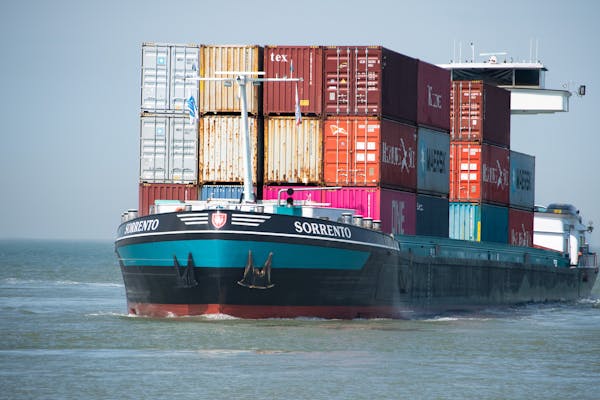
Sustainability Trends in the Global Shipping Industry
The global shipping industry is undergoing a significant transformation as it embraces sustainability to reduce environmental impact. This shift is driven by rising environmental concerns, regulatory pressures, and the need for long-term operational efficiency. One of the most notable trends is the adoption of alternative fuels. Shipping companies are exploring cleaner energy sources such as liquefied natural gas (LNG), biofuels, and hydrogen. These alternatives emit fewer greenhouse gases compared to traditional heavy fuel oils, paving the way for greener shipping practices.
Another important trend is the integration of energy-efficient technologies. Advanced ship designs, such as streamlined hulls and energy-saving devices like air lubrication systems, are improving fuel efficiency. Additionally, retrofitting existing vessels with renewable energy solutions, such as solar panels and wind-assisted propulsion systems, is becoming increasingly common.
Digitalization and automation are also playing a pivotal role in enhancing sustainability. Technologies like artificial intelligence (AI) and the Internet of Things (IoT) are being used to optimize routes, reduce fuel consumption, and predict maintenance needs. Smart shipping not only minimizes operational costs but also reduces the carbon footprint of maritime logistics.
Key Trends in Sustainability for Shipping Companies
- Green Technologies: Shipping companies are adopting eco-friendly technologies like wind-assisted propulsion, hybrid engines, and low-sulfur fuel alternatives. These measures help reduce emissions and comply with environmental regulations.
- Carbon Offset Programs: Many companies in the shipping industry are investing in carbon offset programs to neutralize their carbon footprint. This includes planting trees or investing in renewable energy projects.
- Energy-Efficient Vessels: Shipping companies are now opting for energy-efficient ships that consume less fuel, have better hull designs, and implement smart navigation systems that optimize routes.
- Waste Reduction: There’s a growing focus on reducing waste generated during shipping, with companies adopting strategies like reusing packaging, minimizing plastic use, and optimizing loading capacities.
- Sustainable Supply Chains: Shipping firms are also focusing on sustainable supply chains by collaborating with suppliers who adhere to eco-friendly practices, ensuring that sustainability permeates all stages of the logistics process.
As the global shipping industry grapples with climate change and environmental concerns, sustainability has become a major focus. Leading shipping companies are now making strides to adopt green technologies, optimize energy consumption, and reduce carbon emissions. The industry is responding positively to calls for change by integrating green solutions into their operations.
However, the shift towards sustainability isn't without challenges. The transition to more sustainable practices requires substantial investment in new technologies, as well as the development of comprehensive global regulatory frameworks that guide the industry towards environmentally responsible shipping practices.
3 Comments

Aarav Sharma 19 Dec 2024
Great post! I completely agree with your points about the growing importance of sustainable practices in the shipping industry. As global trade expands, it's vital that we find ways to reduce our carbon footprint and improve energy efficiency in shipping operations.
Priya Patel 20 Dec 2024
I loved this article! The shipping industry is facing many challenges, especially in terms of sustainability. I think the use of green technologies and the push for zero-emissions shipping is a step in the right direction. However, there are still many hurdles to overcome.

Ravi Kumar 25 Dec 2024
This article provides some great insights into the future of shipping. It’s clear that the industry needs to embrace more sustainable practices, not just for the environment but also for economic reasons. Reducing fuel consumption and improving operational efficiency can save companies a lot of money in the long run.
Recent Posts

Logistics & Supply Chain Management Insights
In today's rapidly evolving world, logistics and supply chain management play a critical role in ensuring the timely and efficient movement of goods. With the growing demand for faster deliveries and optimized operations, companies are turning to innovative solutions such as automation, real-time tracking, and sustainable practices. At Marina Shipping, we leverage advanced technology and a global network to streamline logistics processes and meet the dynamic needs of our clients, ensuring reliability, cost-efficiency, and customer satisfaction.
Read More





